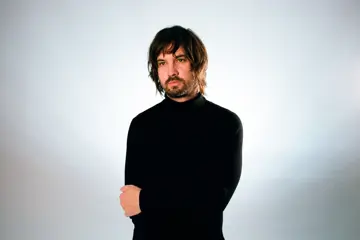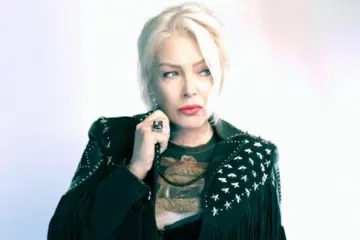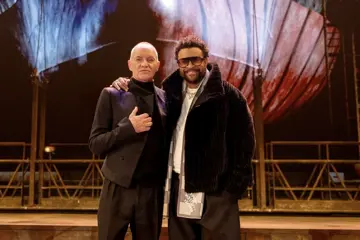It has been a difficult year inside the theatre industry. For all of its front-facing highs – and in Sydney, there have been many, with rows and rows of standing ovations rippling like waves through the days and months of 2018 – there has been a darker undercurrent.
Late last year, anonymous complaints about assault, discrimination, and abuse crept out of the woodwork and carefully, vaguely into the press. We heard about rehearsal rooms where women felt unsafe; we heard about onstage groping. We heard about verbal abuse, and about the ways that those who report bad behaviour are punished for it: given less work, frozen out of clique-ish companies, and treated as liabilities.
In the Australian mainstream media, we watched Eryn Jean Norvill – who never asked for this – sit calmly as the eye of a storm, upended by Geoffrey Rush’s defamation charge against the Daily Telegraph, who had labelled him "King Leer" after Norvill made an anonymous sexual harassment complaint against Rush following their shared scenes in a 2016 Shakespearean production.
We watched Australian theatre luminaries insist that there was no culture of harassment, no power imbalances, on our stages. And we watched Norvill insist over and over again that there is a culture of harassment in Sydney and Australian theatre.
Don't miss a beat with our FREE daily newsletter
Most tellingly, Norvill identified a generational divide in which behaviour is deemed acceptable, or tolerable, and what is not. You can find a similar generational line in the solidarity-showing #IStandWithEJ hashtag that filtered across social media, too: those rising in ranks to support Norvill were our next generation of theatre talents, our independent theatre leaders. Perhaps our new establishment.
The best of Sydney theatre in 2018 embodied the spirit of Norvill and her supporters: weaponising anger, injustice, and silence into beauty, art, and moments of human connection. The theatre is a place to understand who we are, and who others might be. The best of the year showed us just that.
There was The Harp In The South, a new Australian epic based on Ruth Park’s classic trilogy. Adapted for the stage by Kate Mulvany, an artsitic polymath, the two-part theatrical event placed several generations of women front and centre. As Surry Hills gentrified around them, as men tried to destroy them, they held firm to themselves, their ability to love, and their courage to dream. It was romantic, it was sweeping, and it was some of Sydney Theatre Company’s best new work in years.
STC also gave new, urgent, complex life to older women of history and the stage in Top Girls, Saint Joan, and A Cheery Soul: all shows that place women in the centre and ask us to reckon with them and their lot. And they debuted Lethal Indifference, Anna Barnes’ one-woman show about intimate partner violence. Emily Barclay carried a deeply affecting show about the ways abuse grows and erupts into irrevocable damage. It was arresting. Public figure Catherine McGregor’s story turned poetic onstage in Still Point Turning. And Nakkiah Lui changed Australian theatre forever with Blackie Blackie Brown, a stunningly rigorous comedy about reconciliation and revenge.
Belvoir took us to the Torres Strait Islands in January with My Name Is Jimi and My Urrwai, two essential works of Australian playwriting helmed by superstars of charisma: Jimi Bani and Ghenoa Gela. It presented the first Australian show with all-Asian leads, Single Asian Female.
The Hayes Theatre painted complex portraits of communities like Darlinghurst Nights, In The Heights and The View UpStairs, and reminded us to fight convention with the gloriously arch Cry-Baby, which made a star out of its two lead actors, Christian Charisiou and Ashleigh Rubenach, and a talent to watch from Alexander Berlage, making his directorial debut. And in Evie May, we saw a delicate new Australian musical with a queer female love story at its centre.
Tiny companies punched above their weight: The Old 505’s glorious Home Invasion and the Old Fitz’s Metamorphoses gave queerness new narrative lenses. Since Ali Died, part of Griffin’s Batch Festival, blended Omar Musa’s poetry with hip hop, spoken word, and monologue. Downstairs at Belvoir, They Divided The Sky split open new love and old politics. Adena Jacobs reminded us of the power of a woman’s voice in her opera The Howling Girls at Carriageworks.
Griffin Theatre Company demanded our attention, and our consciences, with the full-on explosive play, Kill Climate Deniers. The company’s Good Cook. Friendly. Clean reminded us that older women are Australia’s population most vulnerable to homelessness; The Almighty Sometimes, by astonishing new Australian playwright Kendall Feaver, asked us difficult questions about mental illness. And Nick Coyle’s The Feather In The Web smashed open the ugly reality of love with hilarious, surreal results.
Sydney Theatre is finding new stories and new people to tell those stories. The more it does this: the more it embraces first nations and immigrant voices, the more it produces stories by women and the queer and trans populations, the more it diversifies, the richer it becomes.
We must shift what it tolerated, accepted, and desired. We must embrace the new and exciting, and let go of the old and tired.















